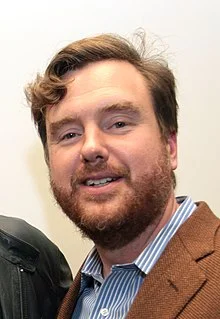
Rikki Schlott
Columnist and news features reporter with the New York Post, covering higher education, campus culture, Generation Z, popular culture, women's issues, and freedom of speech.

Greg Lukianoff
Greg Lukianoff is the CEO of the Foundation for Individual Rights in Education (FIRE). A passionate advocate for free speech, he co-authored 'The Coddling of the American Mind.' Lukianoff has extensively commented on First Amendment rights, particularly within academic institutions.
The Paradox of Modern Education and Millennial Challenges
In the latest episode of the Jordan B. Peterson podcast, the renowned psychologist delves into pressing issues surrounding millennials and the state of modern education. Notably, the conversation brought to light the staggering debt that burdens many young adults and the surprising statistic that a third of American colleges produce graduating classes where the median graduate earns less than the average high school graduate.
"Cancelling of the American Mind": A Deep Dive
Guests Greg Lukianoff and Rikki Schlott introduced their new book, "Cancelling of the American Mind." The co-authors shared their journey of collaboration, a partnership born out of mutual respect and a shared vision. Despite the age difference, with Lukianoff being 48 and Schlott 23, their combined perspectives offer a unique lens through which to examine the current cultural landscape. Schlott's decision to drop out of NYU in 2020, influenced by the challenges of the pandemic and her observations of threats to free speech, provides a personal backdrop to their shared insights.
Feminine vs. Masculine Tendencies: A Debate on Free Speech
The podcast episode delved into the nuanced differences between feminine and masculine tendencies, especially concerning free speech. While the details of this discussion are intricate, it sheds light on the gendered ways people approach discourse and the potential implications for broader societal interactions.
Unpacking Toxic Femininity
In a candid discussion, the concept of toxic femininity was broached. Often overshadowed by its counterpart, toxic masculinity, this topic is rarely discussed in mainstream media. The conversation sought to demystify the term, explore its manifestations, and understand its impact on society.
The Cultural Tilt Toward Victimhood
A significant portion of the episode was dedicated to analyzing the current cultural shift towards self-described victimhood. The guests and host pondered the reasons behind this inclination and the ramifications it has for individual and collective mental health.
The Impact of Cancel Culture on Higher Education
One of the most pertinent discussions in the podcast revolved around the increasing prevalence of cancel culture, particularly within the realm of higher education. Lukianoff and Schlott emphasize that cancel culture isn't just a fleeting trend; its implications are profound, affecting the core principles of academic freedom and open discourse. Universities, which were once bastions of free thought and debate, are now grappling with a culture that often stifles dissenting opinions and punishes those who stray from the prevailing narrative.
Generational Perspectives: Bridging the Gap
The collaboration between Lukianoff and Schlott, with their distinct generational viewpoints, offers a fascinating exploration of how different age groups perceive the current socio-cultural environment. Schlott's perspective, grounded in her experiences as a young adult navigating a world of social media, contrasts with Lukianoff's more seasoned viewpoint. Their discussions highlight the need for intergenerational dialogue to foster understanding and bridge the gaps that often divide age groups.
Mental Health: The Silent Victim of Suppressing Speech
A surprising yet crucial angle the podcast touched upon was the intersection of mental health and free speech. Schlott's personal experiences, coupled with Lukianoff's research, reveal a concerning trend: curbing free speech doesn't just threaten democratic values but also has tangible repercussions on individual and collective mental well-being. The emotional toll of self-censorship, fear of retribution, and the general atmosphere of walking on eggshells can lead to increased stress, anxiety, and a sense of isolation.
The Way Forward: Reclaiming Constructive Discourse
As the episode drew to a close, the conversation shifted towards potential solutions and the path forward. The consensus was clear: there's a dire need to foster environments, especially within educational institutions, where open dialogue is not just tolerated but actively encouraged. This requires a concerted effort from educators, policymakers, and society at large. Only by reclaiming the essence of constructive discourse can we hope to build a more inclusive, understanding, and mentally healthy society.


